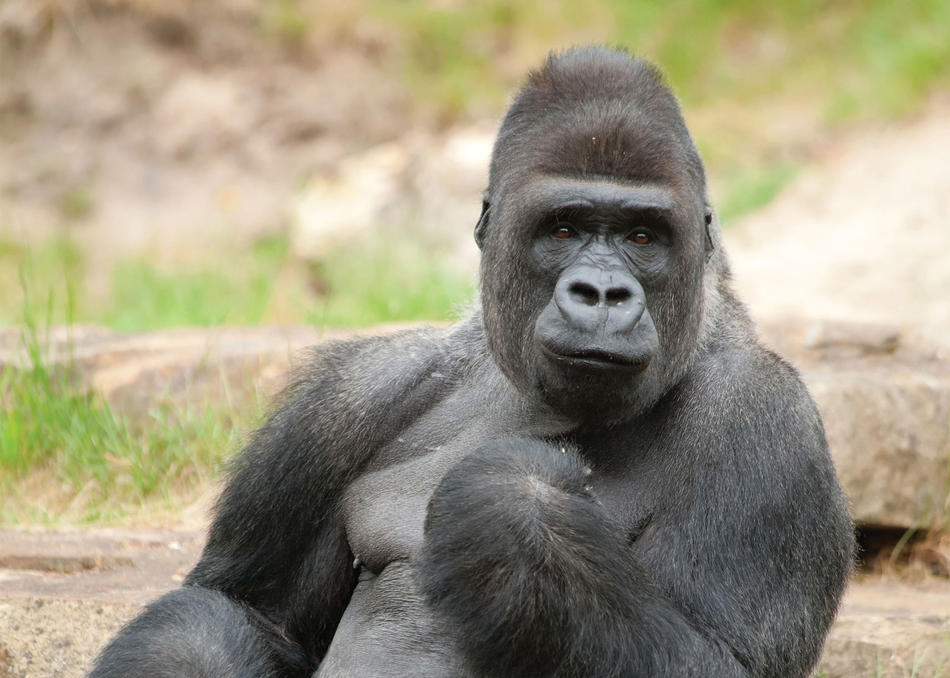For years, scientists have been warning us that our bodies aren’t equipped to handle all the salt, refined sugar, and saturated fat that we consume. Our modern Western diet, they say, is the main reason why rates of obesity, type 2 diabetes, and heart disease are skyrocketing.
Now Columbia researchers say they’ve found evidence that our taste for processed foods may be damaging our bodies in other, more subtle ways. Specifically, they say that a lack of fiber in our diet may be disrupting the natural composition of our gut bacteria, which are known to play a critical role in regulating our immune, metabolic, and hormonal systems, as well as in aiding healthy digestion.
The scientists, led by Columbia epidemiologist Brent Williams, came to this conclusion after inspecting the excrement of dozens of wild gorillas and chimps living in the Sangha region of the Republic of the Congo. The apes’ droppings, collected by members of the Wildlife Conservation Society over a three-year span and then analyzed by Williams’s team, reveal that the mix of bacteria in the animals’ intestines changes dramatically from season to season, in accordance with how much fiber they eat. (The apes subsist for most of the year on leaves and bark, which contain enormous amounts of fiber, but they consume a less fibrous diet of ripe fruit every summer.)
“We found that whenever the apes have access to fruit, all sorts of fiber-eating bacteria that ordinarily permeate their guts disappear,” says Williams.
The discovery is important, Williams says, because it shows how highly sensitive gut bacteria are to changes in diet. And this, he says, should amplify public- health concerns about the fiber deficiency that is now widespread wherever people consume large amounts of processed food.
According to Williams, scientists are just beginning to understand the effects of fiber deficiency. But he says that past studies have suggested that a wide range of health problems can result. In part, this is because gut bacteria that thrive on fiber produce fatty acids that have anti-inflammatory and anti-cancer properties.
Williams is now conducting experiments to determine how fiber deficiency may contribute to specific health problems, including certain types of colorectal cancer.
“You have to realize that our bodies evolved a complex symbiotic relationship with our gut bacteria over millions of years, and those relationships were forged, in part, by dietary habits that were dependent on what was seasonally available in our environment,” he says. “We now rely less heavily on our environment for food, because the globalization of the food supply has placed everything at our fingertips. These relatively recent changes in our diet may be disturbing evolutionary relationships between microbes and humans, with substantial consequences for our well-being.”



